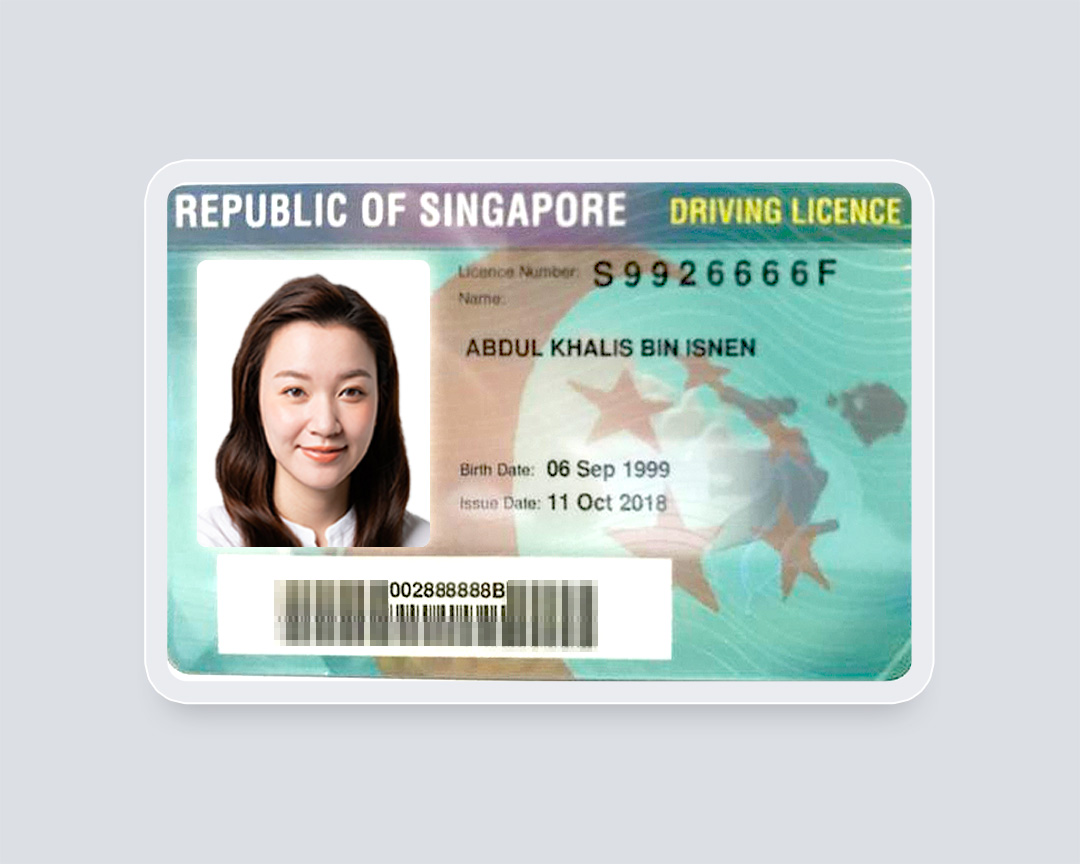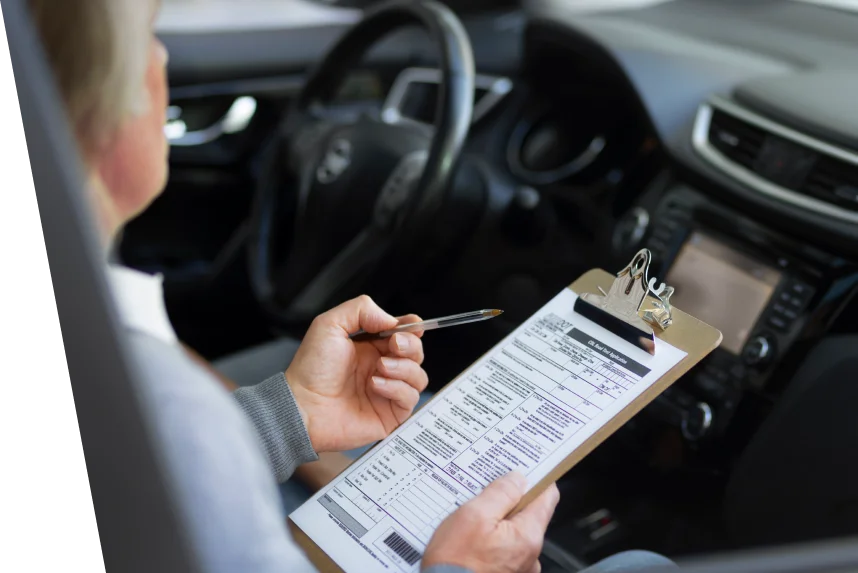Ever wondered what a chauffeur's license really is? Let’s break it down for you, buddy. If you're thinking about becoming a chauffeur or just want to know more about this specialized driving credential, you're in the right place. A chauffeur's license is more than just a piece of paper—it’s a gateway to a world where professionalism meets precision behind the wheel. Whether you're driving luxury cars or providing top-notch transportation services, having this license opens doors to opportunities you might not have considered before. So, buckle up, and let's dive in!
Nowadays, the demand for chauffeurs is skyrocketing. People are looking for safe, reliable, and luxurious transportation options, and that’s where chauffeurs come in. But here’s the thing: you can’t just jump into this role without the proper credentials. A chauffeur's license ensures that you’re trained, tested, and ready to handle high-end vehicles and VIP clients. It’s like the golden ticket to the chauffeur world.
Before we get into the nitty-gritty, let me tell you this: obtaining a chauffeur's license isn’t as complicated as it sounds. Sure, there are steps to follow and requirements to meet, but with the right guidance, you’ll be cruising in no time. So, whether you're a seasoned driver or just starting out, this article will walk you through everything you need to know about chauffeur's licenses. Ready? Let’s go!
Read also:Hyungry Temporary The Ultimate Guide To Temporary Hunger Solutions
Table of Contents
- What is a Chauffeur's License?
- Types of Chauffeur's Licenses
- Requirements for a Chauffeur's License
- How to Get a Chauffeur's License
- Cost of a Chauffeur's License
- Benefits of Having a Chauffeur's License
- Common Mistakes When Applying
- FAQ About Chauffeur's Licenses
- How to Maintain Your License
- Final Thoughts
What is a Chauffeur's License?
Alright, let’s start with the basics. A chauffeur's license is a specialized driving permit that allows you to operate certain types of vehicles professionally. Unlike a regular driver’s license, this one is designed for drivers who provide transportation services to clients. Think limousines, luxury cars, and even corporate fleets. It’s not just about driving; it’s about delivering an experience.
Here’s the deal: different countries and states have varying rules when it comes to chauffeur's licenses. In some places, you might need a Class C or Class D license, while in others, it could be a completely separate endorsement. The key is to understand the regulations in your area and make sure you’re compliant. It’s like learning the rules of the road, but on a whole new level.
So, why is a chauffeur's license important? Well, for starters, it shows that you’ve met specific standards of safety, skill, and professionalism. It also gives your clients peace of mind, knowing that they’re in the hands of a qualified driver. Plus, it can boost your earning potential and open doors to exciting career opportunities. Who wouldn’t want that, right?
Types of Chauffeur's Licenses
Not all chauffeur's licenses are created equal. Depending on where you live and the type of vehicles you plan to drive, you might need a specific type of license. Here’s a quick breakdown:
- Class C License: Typically required for driving vehicles with a GVWR (Gross Vehicle Weight Rating) of less than 26,001 pounds. This is perfect for chauffeurs who operate smaller luxury cars and limousines.
- Class D License: Often used for chauffeurs who drive standard-sized vehicles, such as sedans and SUVs. Think of it as the "entry-level" chauffeur's license.
- Commercial Driver's License (CDL): If you’re planning to drive larger vehicles, like buses or stretch limos, you’ll need a CDL. This is a more advanced license and requires additional training and testing.
- Special Endorsements: Some states require chauffeurs to have specific endorsements, such as passenger transport or hazardous materials handling. These endorsements are added to your existing license and give you the green light to drive certain types of vehicles.
It’s important to note that the type of license you need will depend on the size and capacity of the vehicles you’ll be driving. Always check with your local DMV or transportation authority to ensure you’re getting the right one. Trust me, you don’t want to get stuck with the wrong license!
Requirements for a Chauffeur's License
Before you can start driving like a pro, you’ll need to meet a few requirements. Don’t worry, they’re not as daunting as they sound. Here’s what you’ll typically need:
Read also:Temporary Replacement Hyungru The Rising Star In The Spotlight
- Age: Most jurisdictions require chauffeurs to be at least 18 or 21 years old, depending on the type of license you’re applying for.
- Valid Driver's License: You’ll need a current, valid driver’s license to even apply for a chauffeur's license. Think of it as the foundation for everything else.
- Clean Driving Record: A spotless driving record is a must. Accidents, traffic violations, and DUIs can disqualify you from getting a chauffeur's license, so make sure you’ve been driving safely.
- Background Check: Many places require a criminal background check as part of the application process. This is to ensure that chauffeurs are trustworthy and reliable.
- Medical Examination: Some licenses require a medical exam to confirm that you’re physically fit to drive. This might include vision tests, hearing tests, and other health assessments.
These requirements might vary depending on where you live, so it’s always a good idea to double-check with your local authorities. The last thing you want is to waste time and money on an application that gets rejected because you missed a step.
How to Get a Chauffeur's License
Now that you know what’s required, let’s talk about the process. Getting a chauffeur's license involves a few key steps:
Step 1: Research Your Local Requirements
Every state or country has its own set of rules, so the first thing you need to do is find out what’s expected of you. Check with your local DMV or transportation authority to get all the details.
Step 2: Complete Driver Training
Most places require chauffeurs to undergo specialized training. This might include defensive driving courses, customer service training, and even first aid certification. It’s all about being prepared for anything that comes your way.
Step 3: Take the Written Test
Once you’ve completed your training, it’s time to take the written test. This will cover everything from traffic laws to vehicle maintenance. Don’t stress, though—most people pass with flying colors.
Step 4: Pass the Driving Test
The driving test is where you show off your skills. You’ll be evaluated on things like parking, maneuvering, and handling different types of vehicles. It’s like the ultimate driving challenge, but you’ve got this!
Step 5: Pay the Fees
Finally, you’ll need to pay the necessary fees to get your license. These fees can vary depending on the type of license and the location, so be sure to budget accordingly.
Cost of a Chauffeur's License
Let’s talk money. The cost of a chauffeur's license can vary depending on several factors, including the type of license, the location, and any additional training requirements. On average, you can expect to pay anywhere from $50 to $200 for the license itself, plus additional costs for training and testing.
Here’s a breakdown of potential expenses:
- License Fee: $50 - $200
- Training Courses: $200 - $500
- Testing Fees: $50 - $100
- Background Check: $30 - $50
- Medical Examination: $50 - $100
Keep in mind that these are just estimates. The actual costs can vary, so it’s always a good idea to check with your local authorities for the most accurate information. And hey, think of it as an investment in your future. Worth every penny, right?
Benefits of Having a Chauffeur's License
So, why should you bother with a chauffeur's license? Let me tell you, there are plenty of benefits. Here are just a few:
- Increased Earning Potential: Chauffeurs with specialized licenses often earn more than regular drivers. It’s all about the added value you bring to the table.
- Job Security: The demand for chauffeurs is on the rise, especially in urban areas and tourist destinations. Having a chauffeur's license can give you a competitive edge in the job market.
- Professional Growth: This license opens doors to new opportunities, such as working for luxury car services, corporate fleets, or even starting your own business.
- Client Satisfaction: Clients love knowing that they’re in the hands of a trained professional. It builds trust and loyalty, which is crucial in the transportation industry.
Plus, let’s be real: driving luxury cars and meeting interesting people is pretty cool. It’s not just a job; it’s an experience. And who doesn’t want that?
Common Mistakes When Applying
While getting a chauffeur's license might seem straightforward, there are a few pitfalls to watch out for. Here are some common mistakes to avoid:
- Skipping the Research: Don’t assume that the process is the same everywhere. Always double-check the requirements for your specific location.
- Ignoring the Details: Missing even one small detail, like a background check or medical exam, can delay your application. Pay attention to every step.
- Underestimating the Costs: Budgeting is key. Make sure you account for all the fees and expenses involved in getting your license.
- Rushing the Process: Take your time with the training and testing. Rushing through it can lead to mistakes and, ultimately, failure.
By avoiding these common mistakes, you’ll increase your chances of success and save yourself a lot of hassle in the long run.
FAQ About Chauffeur's Licenses
Still have questions? Here are some frequently asked questions about chauffeur's licenses:
Q: Do I need a chauffeur's license to drive a limousine?
A: In most cases, yes. A chauffeur's license is required to legally operate limousines and other luxury vehicles for hire.
Q: Can I use my regular driver's license for chauffeur work?
A: Not usually. A regular driver's license won’t cut it if you’re planning to drive professionally. You’ll need the appropriate chauffeur's license to meet legal requirements.
Q: How long does it take to get a chauffeur's license?
A: The process can take anywhere from a few weeks to a few months, depending on the requirements and your schedule. Be patient and plan accordingly.
Q: Do I need insurance as a chauffeur?


